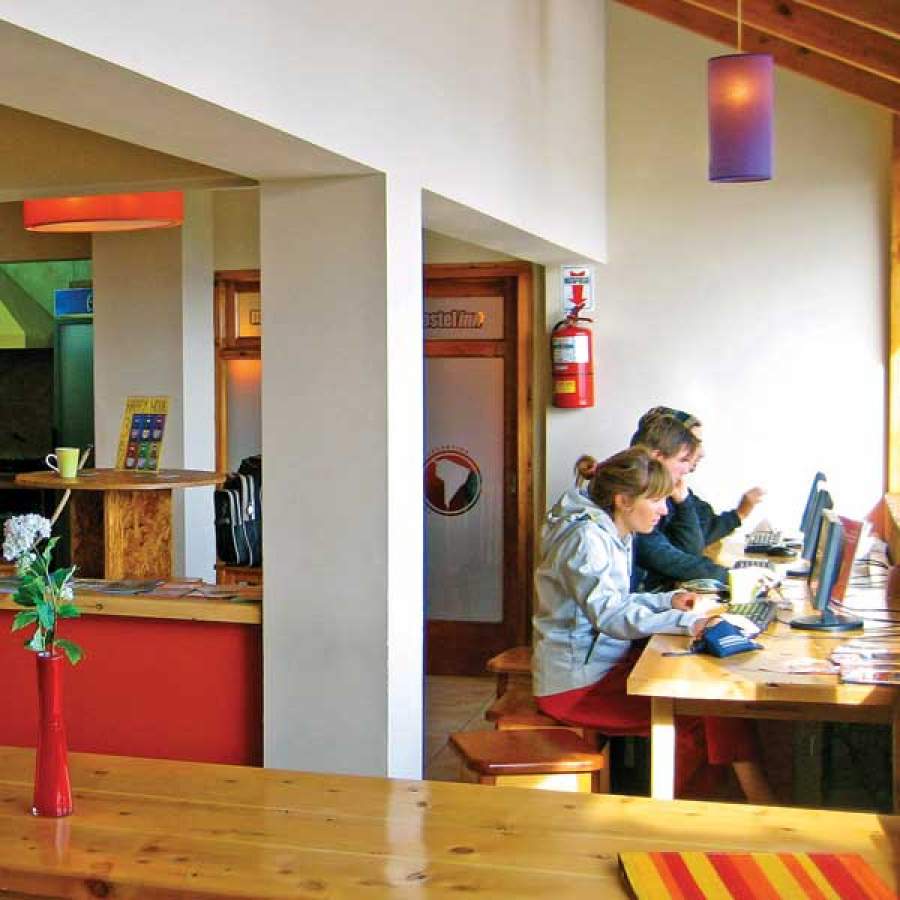“Housing can make or break a rewarding study abroad experience,” says Sheryl Hill, Founder of the Clear Cause Foundation, a non-profit committed to keeping students safe during study abroad programs. While many universities have study abroad advisors who plan every detail, including housing, at other schools students must make their own arrangements. But for study abroad participants with limited travel experience, finding housing overseas may be a daunting task. Here’s how to get started:
Location, Location, Location: Research prospective neighbourhoods.
Kristina Wegscheider learned the value of location when she studied in Cape Town in 2003. Wegscheider stayed at the Breakwater Lodge, a 19th century prison that’s been converted to a budget hotel. Located along the waterfront, it was only a five-minute walk to restaurants and had “amazing views” of Table Mountain. For Wegscheider, it was the perfect home away from home. “If you’re staying in one place for a long time, look for something that will allow you to feel like you’re at home,” she advises.
Housing can play a critical role in promoting or hindering your cultural immersion.
In addition to considering proximity to classes, transportation, entertainment and laundry, don’t forget safety. “Check the security of the residence by looking at the outside doors and windows, crime in the area, lighting outside [and] common areas,” says Hill, who also strongly advises researching the history of the residence and requesting references.
Home Sweet Home Stay: Choose a home stay to maximize your learning.
Housing can play a critical role in promoting or hindering your cultural immersion. While studying abroad in Barcelona, Spain, Ron Flavin chose to live with a Peruvian woman in order to learn Spanish. “The daily interaction was very useful in developing my language skills,” Flavin recalls. “She used to tell me stories about growing up during Peru’s ‘dark period’ when terrorist attacks were a common occurrence.” The home stay provided a cultural context for Flavin’s language learning and later on, inspired him to move to Peru.
However, living in someone else’s house also means living by someone else’s rules. In 1999, Christy Grimste studied in England, where her host family would only let her turn on the heat from 6 p.m. to 9 p.m. every night. “The family was just looking for an extra way to get some cash since the university paid them a monthly stipend,” she says. Be sure to communicate with your host about the cost and living conditions, including meals, and indicate any dietary requirements or allergies.
Dreaming of Dorms: Make sure your residence isn’t just an animal house.
Student residences are ideal for making friends. Usually, there will be two options, both on and off campus: international student residences and residences for local and exchange students. While the latter may run on a different academic calendar, they’re more suited to cultural immersion. For Andrew Schrage, who studied abroad at the Chinese University of Hong Kong, living in dorm housing with other students from China was the perfect opportunity to get exposure to the life, language, and culture of Hong Kong. “I felt as though I would be wasting a great opportunity if I chose to stay with other foreign students,” he says.
Schrage advises students to inquire early about payment methods. International residences may bill you in dollars at a price that is significantly higher than that offered to locals. To avoid losing money in the exchange, consider housing priced in the local currency.
Living the Suite Life: Determine whether housekeeping is a top priority.
Staying at a hotel or hostel is usually not a long-term solution—it can be very expensive and studying may be difficult if you’re living with partiers. But it has its advantages; utilities, cleaning and Internet may be included. Ask if you can pay upfront in cash and some hostel owners may give you a price comparable to that of an apartment.
Your Place or Mine: Ask for references before you make your move.
While private apartments may work well for independent students, couples or families, they are also more expensive. Shared apartments offer a more affordable way to meet people. While studying abroad in Istanbul, David Joshua Jennings stayed in various shared houses. “It was cheap and the only way I could afford to stay near the city center,” he says.
To find vacancies, sites such as www.studentaccommodationone.com and www.studentmundial.com, which list accommodations worldwide, are your best resource. You can also browse location-specific listings, such as Craigslist, Couchsurfing, www.londonhousehunters.co.uk for London or www.segundamano.es for Madrid.
But before you make a deposit, contact the landlord and schedule an in-person visit. If possible take a local along with you; they can usually tell whether it’s a good or bad deal. “My only horror stories involve actually believing Turkish landlords when they promise you something,” Jennings recalls. “Contacting references is perhaps the best way to combat this.” In general, it’s best to go with a landlord who regularly rents to foreign students.
Above all, don’t despair. Be patient and open to make compromises. “The more time spend investigating the location, condition, safety and pricing of a residence, the better the experience,” says Hill. By consulting with advisors, former students and locals, you’ll find an affordable place to feel at home abroad.
Isabel Eva Bohrer is a freelance writer and photographer who has produced articles from over twenty countries on five continents. She first studied abroad in Madrid and publishes MADbudget: A Local's Guide to Madrid. isabelevabohrer.com
Add this article to your reading list



